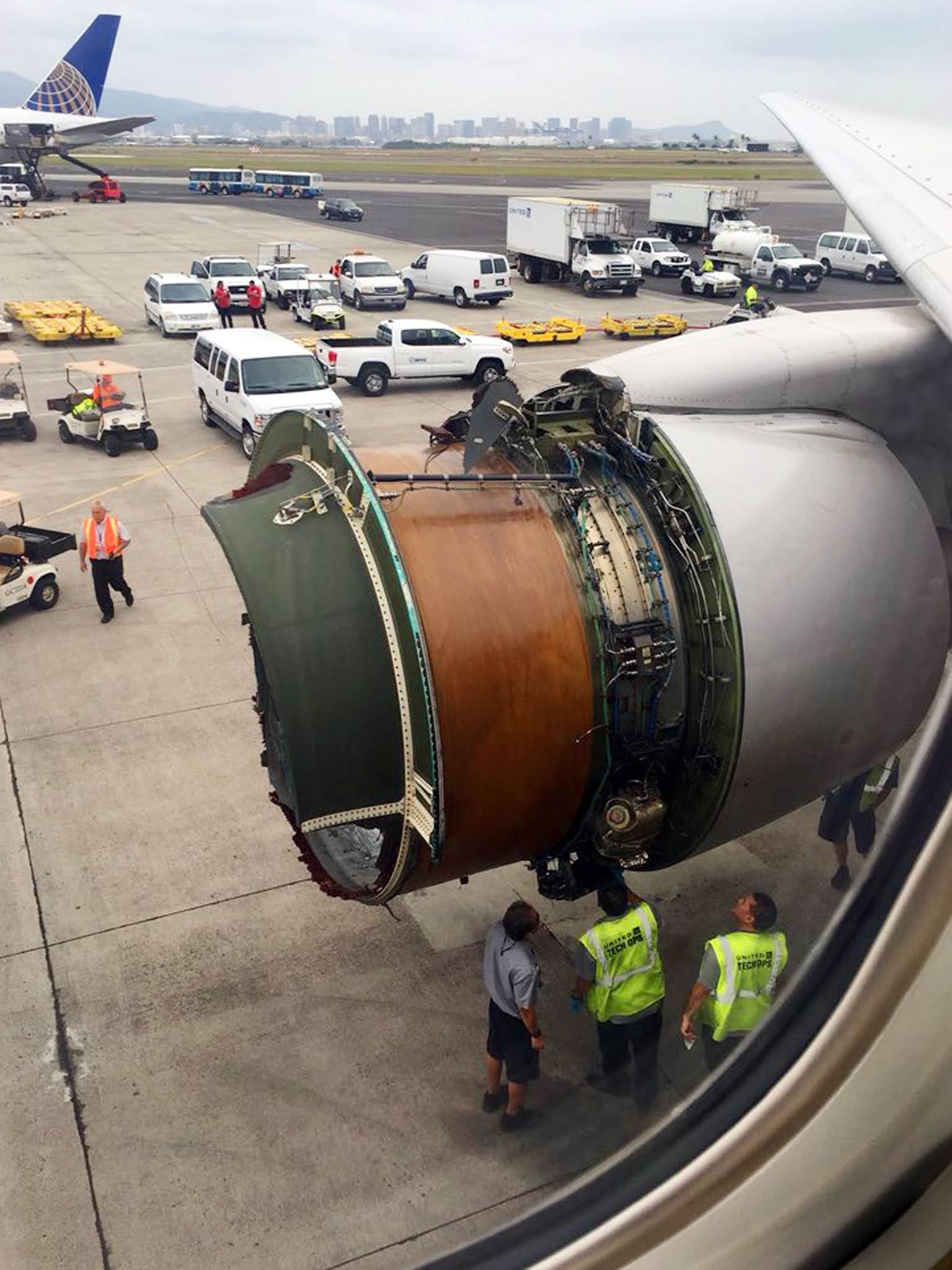The NTSB update also said a fan blade that failed in the Boeing 777's engine had most recently received a close inspection for wear and tear in 2016 and was less than halfway to the point of requiring another inspection.
The new details are part of an update from the NTSB on its ongoing investigation into the incident, which took place February 20 in the skies above Denver and sent debris from the airplane raining down on a residential area in nearby Broomfield, Colorado. The plane returned to Denver International Airport safely with no injuries on board or on the ground.
The NTSB investigation typically takes a year or more to complete. The seven-page report released Friday did not make any conclusions about the cause of the incident nor did it prescribe further steps for the Federal Aviation Administration, aircraft operators, or the engine manufacturer to make.
The new details are part of an update from the NTSB on its ongoing investigation into the incident, which took place February 20 in the skies above Denver and sent debris from the airplane raining down on a residential area in nearby Broomfield, Colorado. The plane returned to Denver International Airport safely with no injuries on board or on the ground.
The NTSB investigation typically takes a year or more to complete. The seven-page report released Friday did not make any conclusions about the cause of the incident nor did it prescribe further steps for the Federal Aviation Administration, aircraft operators, or the engine manufacturer to make.
According to the update, the flight crew was increasing power "to minimize the time in expected turbulence" as the aircraft was climbing to its assigned altitude. The airspace around the Denver airport is known for turbulence, according to CNN affiliate KMGH.
"Immediately after the throttles were advanced a loud bang was recorded" on the cockpit voice recorder, the report said.
Travis Loock, a passenger on Flight 328, said it was about 20 minutes after takeoff that he heard a boom.
"There was a big boom and the kind of sound you don't want to hear when you're on the airplane," Loock, who was flying with his wife, told CNN in a phone call after the incident. "And I instantly put my shade up, and I was pretty frightened to see that the engine on my side was missing."
The flight data recorder indicated "the engine made an uncommanded shutdown and the engine fire warning light activated shortly after," the report said.
The pilots followed the procedure to fight the fire, and determined they would not dump fuel to make the aircraft lighter before landing, the report said. They concluded that "the magnitude of the overweight landing was not significant enough to outweigh other considerations."
The report said a valve that cuts fuel flow to the engine in case of fire had properly closed and said: "there was no evidence of a fuel-fed fire." The report cited damage to the "fuel, oil, and hydraulic lines."
The report said the engine flared up in flames after landing at the airport but that "was quickly extinguished" by firefighters.
Via (CNN)

